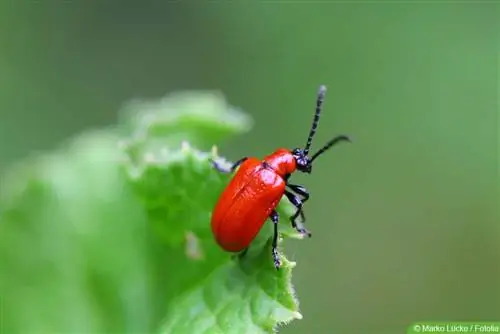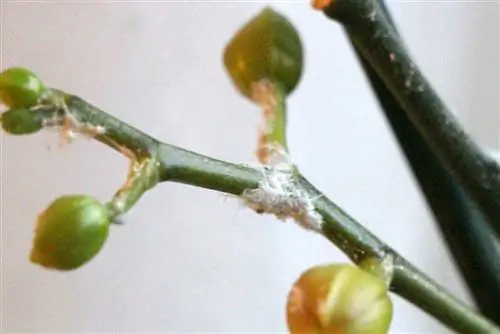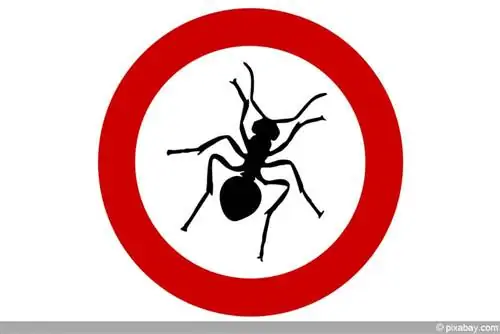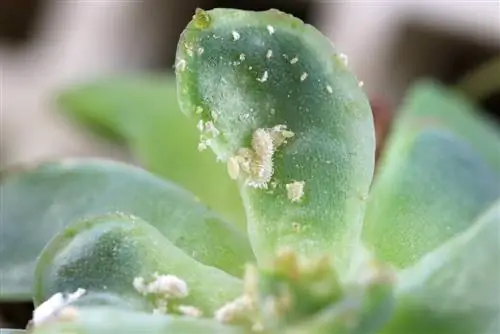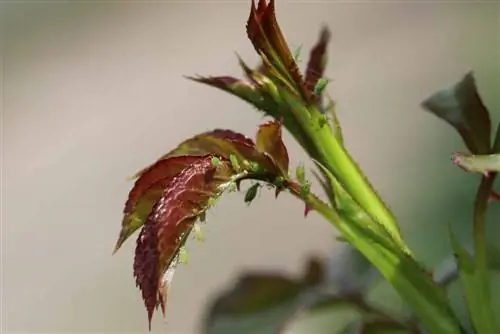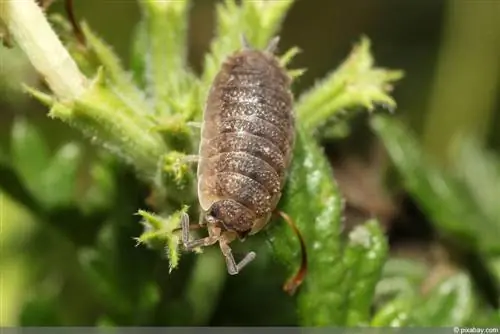- Author admin caroline@plants-knowledge.com.
- Public 2023-12-17 03:39.
- Last modified 2025-01-24 12:45.
The six to eight millimeter large, bright red beetles with a black head and black legs prefer to eat lilies, hybrid species even more than pure species. They also feast on chives, garlic and vegetable onions. The larvae also eat the plants and they are really voracious. Plus, they're smart. They carry their droppings around on their backs, scaring off natural predators such as birds.
Fighting lily chickens the classic way
Lily chickens can completely eat plants. They like flowers, leaves and seed pods. Only the underground parts are spared. The insects cause great damage, especially during the budding period. Even if the lily survives, its beauty is gone. The plants no longer develop as well. They often present a really sad picture.
Collect
The safest method is still collecting the beetles, larvae and eggs. This must begin in mid-April. You simply collect them by hand. Anyone who feels disgusted should wear gloves. It's important to be quick. When the beetles notice the disturbance, they use a trick. They just let themselves fall to the ground. There they lie with their dark underside upwards and are therefore difficult to see. For this reason, it makes sense to hold a container under the infected plant to catch the beetles. In the event of a mass infestation, you can also place a fleece under and between the plants and intentionally cause the beetles to drop down. They can be easily collected on a light-colored fleece. The best time to collect is in the morning, when the beetles are not yet so mobile.
Water hose
There is a simple remedy against the larvae. They can be rinsed off the plants with a jet of water. Since they are fairly immobile, they can't make it back up.
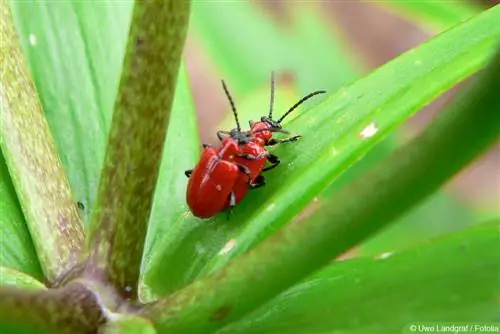
In practice, both remedies can only be used on individual plants or smaller groups. If you have large stocks of these beautiful plants in your garden, it is impossible to go through all the plants. In this case you have to come up with something else.
Home remedies for lily hens
The lily hen is a pretty beetle. Anyone who cultivates lilies, imperial crowns or leeks, garlic or chives can certainly do without his presence. Both the beetles and mostly the larvae can cause great damage. Collecting is a good method, but it is time-consuming, especially if there are many threatened and infested plants. Hosing down with water is also useful. Once washed away, the larvae can no longer return to the plant and die. Otherwise, you can just try out the home remedies that work best in your own garden. There is no universal remedy, sometimes you have to combine several methods.
Soap & Spirits
A mixture of 1 teaspoon of soap and 200 ml of spirit, mixed with a liter of water, has proven to be a good home remedy. The plants must be sprayed with this, from above but also below the leaves. The larvae do not survive this treatment and the beetles are driven away.
soft soap
A soft soap and ethanol mixture is also helpful.
Smells
Onions, garlic and chives are protected with crop protection nets, mainly during the beetle flight season, from April to June.
Algae lime & rock powder
Sprinkling with algae lime and rock dust helps and is good for the soil. It is important that this “dust” also gets under the leaves. This is a bit difficult. A nylon stocking into which the flour or lime is poured can help. This is then carefully tapped against the underside of the leaf in the hope that enough will stick. The treatment must be repeated several times, especially after rainstorms when the plants have dried out to some extent. Too much rock dust can hinder the plants' ability to breathe, so don't overdo the treatment.
Coffee grounds
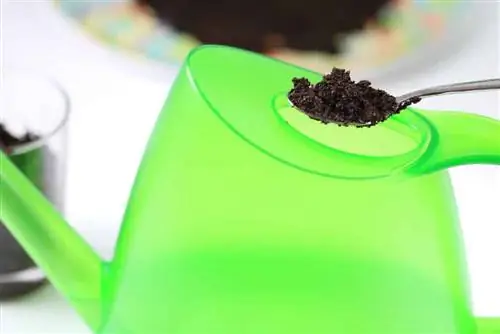
Spread coffee grounds around the plants, lily chickens don't like that at all.
Stinging nettle manure
Spray with nettle broth, the beetle doesn't like it and it also strengthens the plants. To do this, mix 250 g of dried or 1000 g of fresh nettles with 10 liters of cold water. Cover the container and let stand for 24 hours or longer. You can add rock dust to combat the smell. Then spray the plants undiluted with the broth. Do not treat in the sun, but also not in the rain.
Pure Fern
A broth made from tansy has a similar effect. To do this, 100 g of dried flowers are boiled with 3 liters of water. When the brew has cooled, it is strained. The plants are then sprayed from above and below. With plant broths, the treatments must be repeated regularly.
Neem tree oil
Spraying with neem or neem oil - spray the entire plant. The remedy hardly helps against the beetles, but it disrupts the hormonal balance of the larvae and they can no longer pupate.
Natural enemies
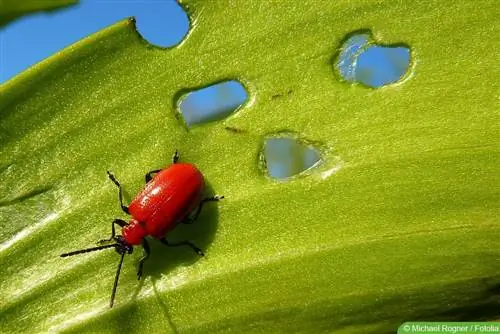
Natural enemies should be encouraged. They include birds, hedgehogs, shrews and predatory beetles. Dwarf wasps kill the eggs, parasitic wasps kill the larvae. Other types of wasps also do a good job, but are not really popular in the garden.

